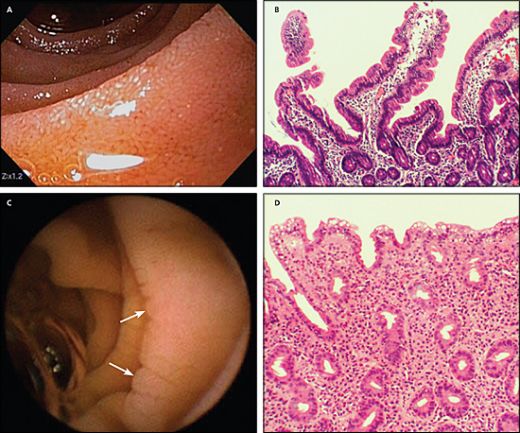
‘I try to control it at weddings’: Mike Sullivan is the only registrar in the country with Tourette’s syndrome
for years he has been trying to avoid sticking his tongue out, squeaking and wobbling his head while he conducts wedding ceremonies.
But for Mike Sullivan, the country’s only registrar with Tourette’s syndrome, help is at hand.
He is to have two transmitters implanted in his brain in pioneering brain surgery to stop his involuntary ticks as he officiates over weddings.
The deputy registrar from Exeter, Devon, is about to become the seventh Tourette’s sufferer to have the surgery to help treat his symptoms.
Mr Sullivan, who has been a registrar for nearly three years, said: ‘I suffer from motor and vocal ticks, which means involuntary movements of the arms, neck and head, sticking my tongue out and making noises such as squeaks.
‘I don’t swear – only 10 per cent of Tourette sufferers have coprolalia that’s the verbal obscenities.
‘I try to keep a lid on the ticks at work but I do have little outbursts.
‘When I am in on a wedding I try to keep it under control which is very difficult. It takes a lot of strength.
‘There have been a couple of times I’ve had an outburst but mostly when I have been in front of colleagues not the customers.
‘You can’t really have an outburst during a wedding.
‘I try to do it in private but it’s more likely to happen when I am stressed.’
‘The customers have heard my ticks if they have just come in over thecounter but you become a very good actor and I try to disguise it as a cough. It is embarrassing.
‘I have become very adept at that over the years which isn’t necessarily a good thing. It’s very frustrating.
The 32-year-old will undergo a deep brain stimulation procedure in the National Hospital for Neurology and Neurosurgery in London later this month. Surgeons will implant two transmitters in his brain which will send out electric signals and shocks to help stop the involuntary outbursts.
These will be attached to another transmitter placed under his left collar bone.
The procedure has previously been used to treat Parkinson’s disease and epilepsy but now surgeons are using it to help Tourette’s sufferers.
Pioneering surgery:Mr Sullivan will have electric transmitters implanted in his brain to stop his involuntary outbursts
Mr Sullivan added :’When I go home it’s just a constant outburst because I have been keeping it inside all day.
‘It is horrible. my girlfriend cannot believe how I do it. She said she would jump off a bridge if she had this. but you never know how you are going to deal with a situation until it happens to you.
“I have lived with it so long I have just got to the point where I put up with it. I’m hoping for any improvement after the surgery.
‘Even five per cent [reduction in outbursts] will be amazing but I won’t believe it is actually happening to me until I am on that operating table.
‘It will definitely help me do my job and will be life changing for me.’
‘I have pinned all my hopes on this.
‘I cannot wait for it to be over to see the results.’
WHAT IS TOURETTE’S?
Tourette’s syndrome is a neurological disorder caused by abnormalities in the development of the nervous system and brain and the condition often appears in childhood.
It is characterised by tics – sudden movements which are involuntary.
Tourette’s is usually spotted in children who move suddenly with the motion accompanied by a word or sound.
However, as children are prone to develop these sorts of characteristics when they are growing up, the symptoms need to be there for 12 months before the condition is diagnosed.
Tourette’s is often linked with other conditions – such as obsessive compulsive disorder and ADHD.
His battle with Tourette’s and OCD began when he was 12. however over the past three years, since he became a registrar, his condition has deteriorated and his quality of life is said to be very poor.
He first became aware of the possibility of treatment through his consultant at the Royal Devon & Exeter Hospital in 2009 who asked if he wanted to be one of the 20 Tourette’s sufferers lined up for a trial in London.
Funding for this is yet to be finalised, but Mike was called up last month and asked if he wanted the surgery carried out away from the trial.
Recognised risks include bleeding on the brain and being paralysed, but Mike said the potential benefits far outweigh any negatives.
He said: ‘I am not expecting to be cured but I hope to see a vast improvement.
‘I am just relieved and excited it may happen.
‘In a sense I am a bit nervous thinking about all the things that could go wrong but I will definitely not back out now.’
Mike will be going up to the hospital a week before the operation for tests and will then be monitored for the next 12 months.
He said: ‘I will find out a lot more about how it will work when I go up there, but I am desperate for it.
‘A lot of people around me don’t want me to have it done because of the risks involved and they think I am mad. but unless you live with something you don’t know how bad it is.
‘My mum and my girlfriend both see how bad it is and know it is well worth the risk.’ ‘It is not nice to live with and I am constantly tired. but I have found a job with good employers and would like to progress in my career.
‘If I cannot control Tourette’s and it continues to get worse then it will put a stop to my hopes and it will be a battle to keep going.’